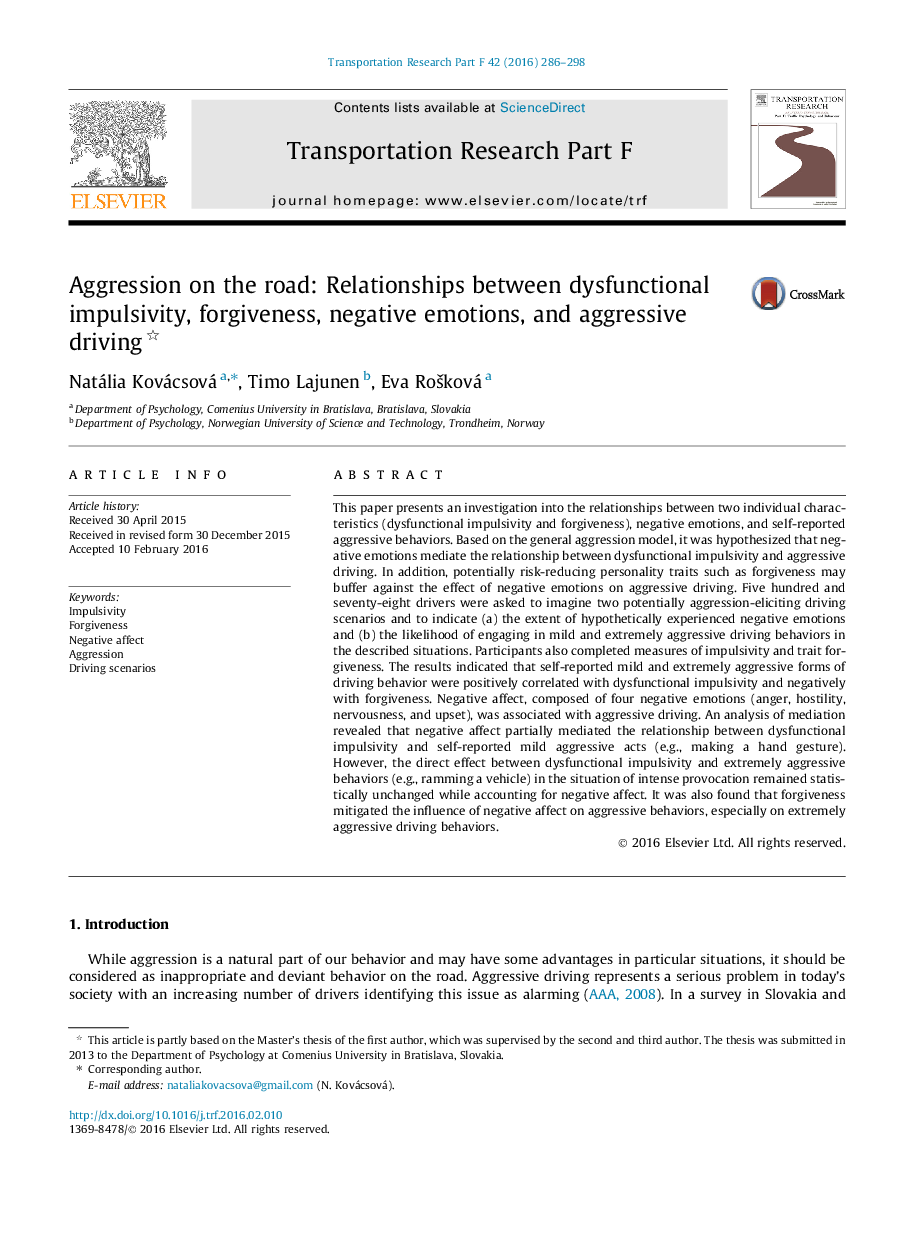| کد مقاله | کد نشریه | سال انتشار | مقاله انگلیسی | نسخه تمام متن |
|---|---|---|---|---|
| 5037508 | 1370225 | 2016 | 13 صفحه PDF | دانلود رایگان |
- Dysfunctional impulsivity is associated with aggressive behavior on the road.
- Forgiveness is inversely related to aggressive driving and negative emotions.
- Negative affect partially mediates the effects of impulsivity on aggressive driving.
- Forgiveness mitigates the influence of negative affect on aggressive behaviors.
This paper presents an investigation into the relationships between two individual characteristics (dysfunctional impulsivity and forgiveness), negative emotions, and self-reported aggressive behaviors. Based on the general aggression model, it was hypothesized that negative emotions mediate the relationship between dysfunctional impulsivity and aggressive driving. In addition, potentially risk-reducing personality traits such as forgiveness may buffer against the effect of negative emotions on aggressive driving. Five hundred and seventy-eight drivers were asked to imagine two potentially aggression-eliciting driving scenarios and to indicate (a) the extent of hypothetically experienced negative emotions and (b) the likelihood of engaging in mild and extremely aggressive driving behaviors in the described situations. Participants also completed measures of impulsivity and trait forgiveness. The results indicated that self-reported mild and extremely aggressive forms of driving behavior were positively correlated with dysfunctional impulsivity and negatively with forgiveness. Negative affect, composed of four negative emotions (anger, hostility, nervousness, and upset), was associated with aggressive driving. An analysis of mediation revealed that negative affect partially mediated the relationship between dysfunctional impulsivity and self-reported mild aggressive acts (e.g., making a hand gesture). However, the direct effect between dysfunctional impulsivity and extremely aggressive behaviors (e.g., ramming a vehicle) in the situation of intense provocation remained statistically unchanged while accounting for negative affect. It was also found that forgiveness mitigated the influence of negative affect on aggressive behaviors, especially on extremely aggressive driving behaviors.
Journal: Transportation Research Part F: Traffic Psychology and Behaviour - Volume 42, Part 2, October 2016, Pages 286-298
